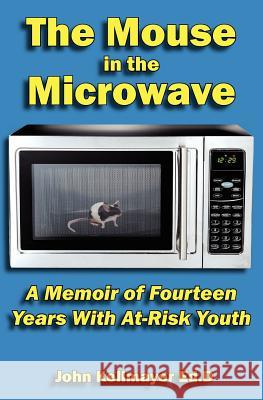The Mouse in the Microwave » książka
The Mouse in the Microwave
ISBN-13: 9780615563626 / Angielski / Miękka / 2012 / 256 str.
The Mouse in the Microwave tells the story of a county-wide alternative high school for chronically disruptive and disaffected students that in 1986 John Kellmayer was hired to establish on the campus of Atlantic-Cape Community College, about fifteen miles east of Atlantic City. The Mouse is the story of young people who had been written off by society. For many of these students, happiness was a mirage, unapproachable, like a pool of water that you see at the end of a long stretch of highway on a hot and humid summer afternoon. The alternative school students were racing to devour the greatest volume of gratification before it killed them. The state grant that provided the initial funding for the school describes the student population: a history of violent and aggressive behavior; academic underachievement; substance abuse; learning disabilities; low self-esteem; depression; dysfunctional home situation; emotional and psychological problems; suicidal ideation. The alternative school would serve every known social and learning pathology and group except adolescent serial killers and vampires. There was even a student who drank human blood and another student, a White supremacist, who wore a Whizzinator to try and beat a drug test. The staff at the alternative school would become as used to conflict, even tragedy, at the alternative school as the sun rising in the morning and setting in the evening. But the staff was fortunate that their successes outnumbered their failures. Today, many of these young people, now in their twenties or thirties, are well adjusted and contributors to society. A few are well known in the film and music industries. The Mouse in the Microwave isn't a scholarly book but rather a book about struggles, dreams, and rising to meet challenges in the face of adversity. Told with a sense of humor, The Mouse is a poignant story about the underdog, about redemption, and about perseverance. It's a story of treating troubled at-risk youth with kindness and decency; treating them as people rather than prisoners.











